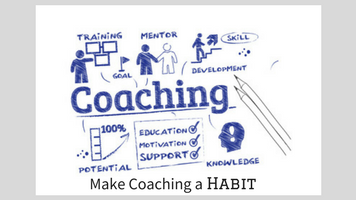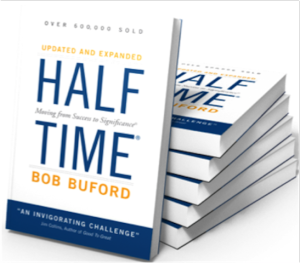Podcast: Play in new window | Download
Subscribe: Apple Podcasts | RSS | More
Doing great work by teaching people and
helping them grow
 Michael Bungay Stanier
Michael Bungay StanierMost of us have the tendency to rush in giving advice to other people but what is it that prevents most leaders to be ‘coach-like’ to their team? In today’s podcast, Michael Bungay Stanier explains why by just being like a coach, great work can happen – to the person being coached, to the organization, to the leader himself and to the world. It’s not a question of knowledge because there are now so many resources like books and podcasts where we can learn and gain knowledge from, but as Michael says, ‘If you really want to shift the way you show up to the world, you have to understand what it takes to change your behavior and habits are at the heart of behavior change.’
To answer the question above as to the reasons why leaders refuse to coach are that coaching arises as a whole bunch of baggage for most people and they feel they don’t have time for this stuff. But what they don’t realize is, being more coach-like doesn’t only help others but also themselves because it allows them to disengage from over helping and being less help than what they are trying to be.
The seven questions that Michael shares have something to do with the 3 principles of coaches: be lazy, be curious, and be often. These seven questions actually help others grow by enabling them to become more competent, more confident, have more impact and have more autonomy. In this podcast, Michael only mentions six questions. They are:
- What’s on your mind? – the kickstart question that lets the other person choose what he wants to talk about which helps to get into the real conversation right away
- And what else? – this is the best coaching question in the world because it’s powerful. Usually, the first answer somebody gives you is never the only answer and it’s rarely the best answer. What it does is it deepens and adds more value from any other question and it also serves as a self-management tool for the leader to slow down the rush to action and advice-giving
- What’s the real challenge here for you? – this is a focus question and the key here is that the first challenge that shows up is almost never the real challenge. This question digs deeper into what really needs to be figured out.
- What do you want? – this is a foundation question. Interestingly, most people actually don’t know what they really want. If they get clear on that, so many things fall away as they get laser focused on the things that matter.
- How can I help?- the lazy question. It helps you calibrate how much you know and how much you don’t know. This question slows down people to rushing into action and it’s a way to make sure that leaders understand them before jumping into action.
- If you’re going to say ‘yes’ to this what must you say ‘no’ to? – this is a strategic question that makes the opportunity cost more obvious
Michael encourages leaders like us to be coach-like because it can actually make us more influential to other people and to the world. Having the answers is not the outcome that we want but it’s allowing others to find the answer.
What You Will Learn:
- How becoming a coach-like leader help you be more effective and influential
- The 4 main drivers that keep people engage and feel good about themselves
- What servant leadership is
- Things that prevent people from becoming more coach-like
- The seven learning questions
Resources
- Michael’s website: boxofcrayons.com
- Michael’s books: The Coaching Habit
Maximize Your Potential: Grow Your Expertise, Take Bold Risks, & Build An Incredible Career
- Michael’s LinkedIn: Michael Bungay Stanier
- Michael’s YouTube: BoxOfCrayonsMovies
- Michael’s Facebook: Michael Bungay Stanier
- Michael’s Twitter: @boxofcrayons
BIO
Michael is the Senior Partner at Box of Crayons, a company that helps organizations do less good work and more great work.
He’s the author of several books, including The Coaching Habit and Do More Great Work. Michael has written for or been featured in numerous publications including Business Insider, Fast Company, Forbes, The Globe & Mail and The Huffington Post.
At Box of Crayons, Michael and his team of facilitators teach 10-minute coaching so busy managers build stronger teams and get better results. Clients come from all sectors and include Box, the United Nations, Gartner, the University Health Network and USAA. A sought-after speaker, Michael regularly speaks to businesses and organizations and has delivered keynotes at Leadership, HR and Learning & Development, conferences around the world, including ATD, SHRM, IPL, HRPA and the Conference Board of Canada.
Michael left Australia 25 years ago to be a Rhodes Scholar at Oxford University, where his only significant achievement was falling in love with a Canadian, which is why he now lives in Toronto, having spent time in London and Boston. He was the first Canadian Coach of the Year.

